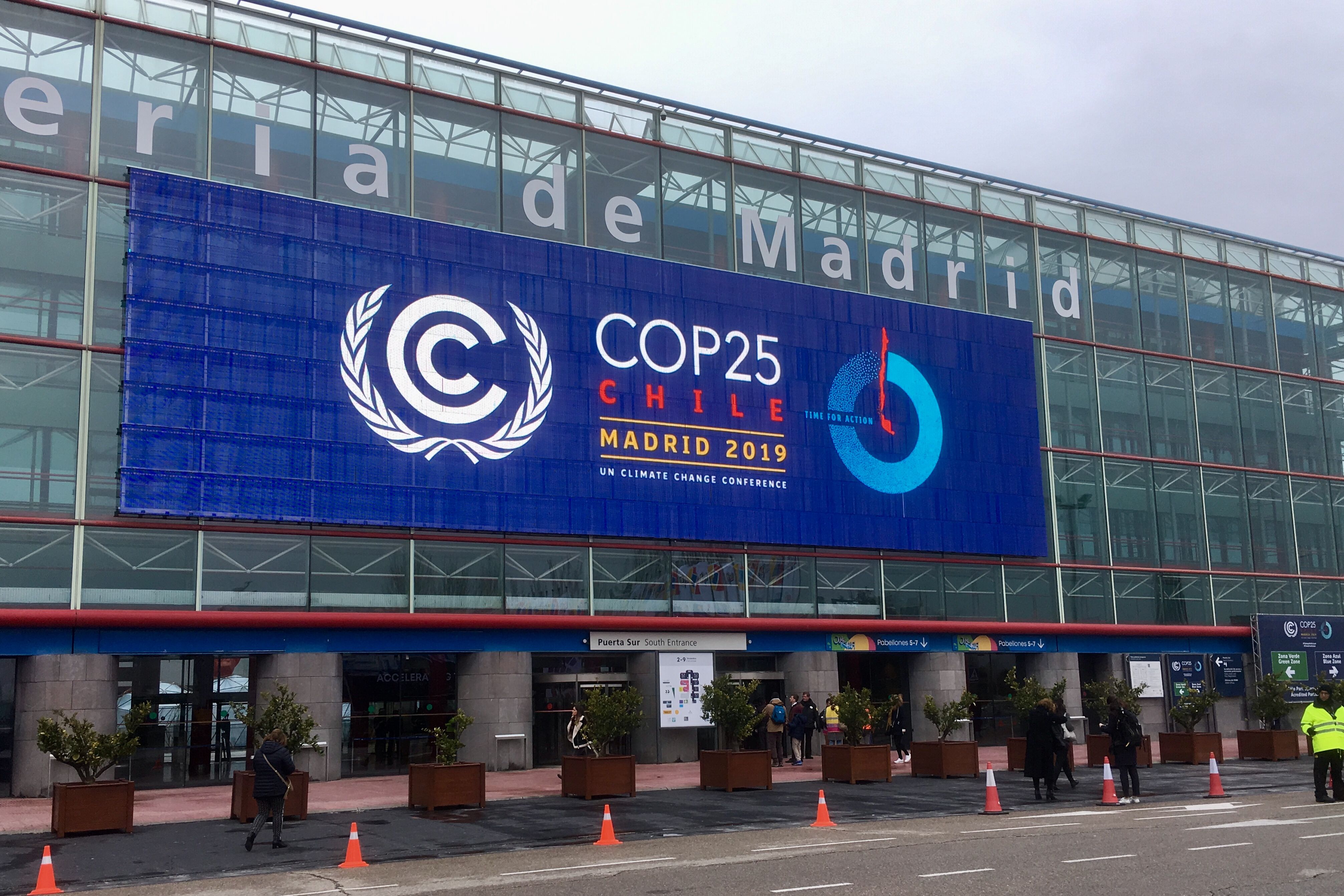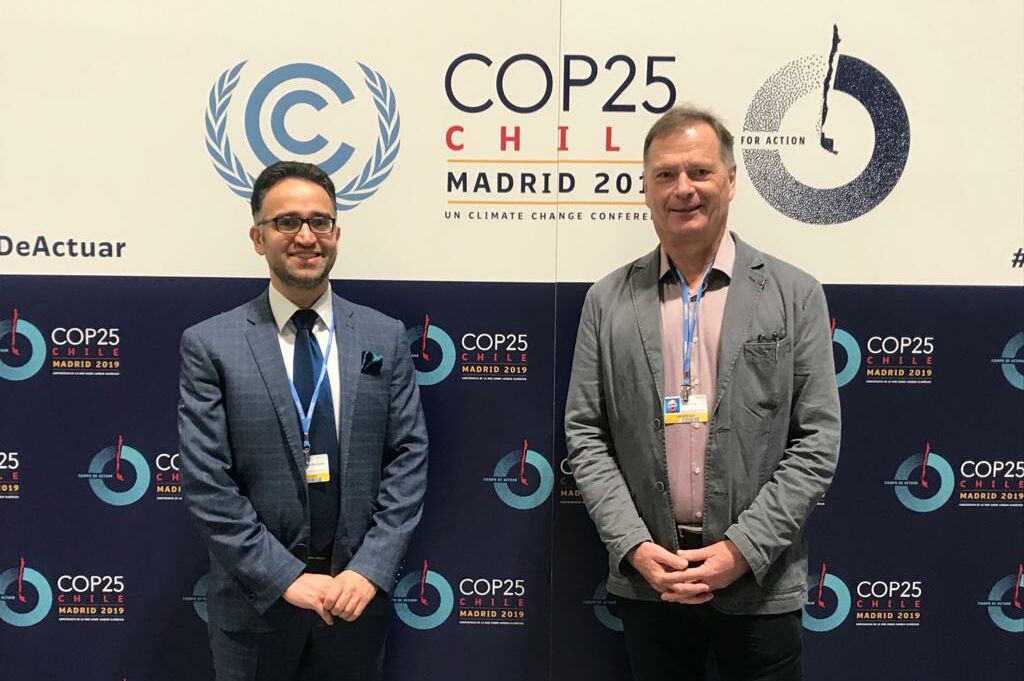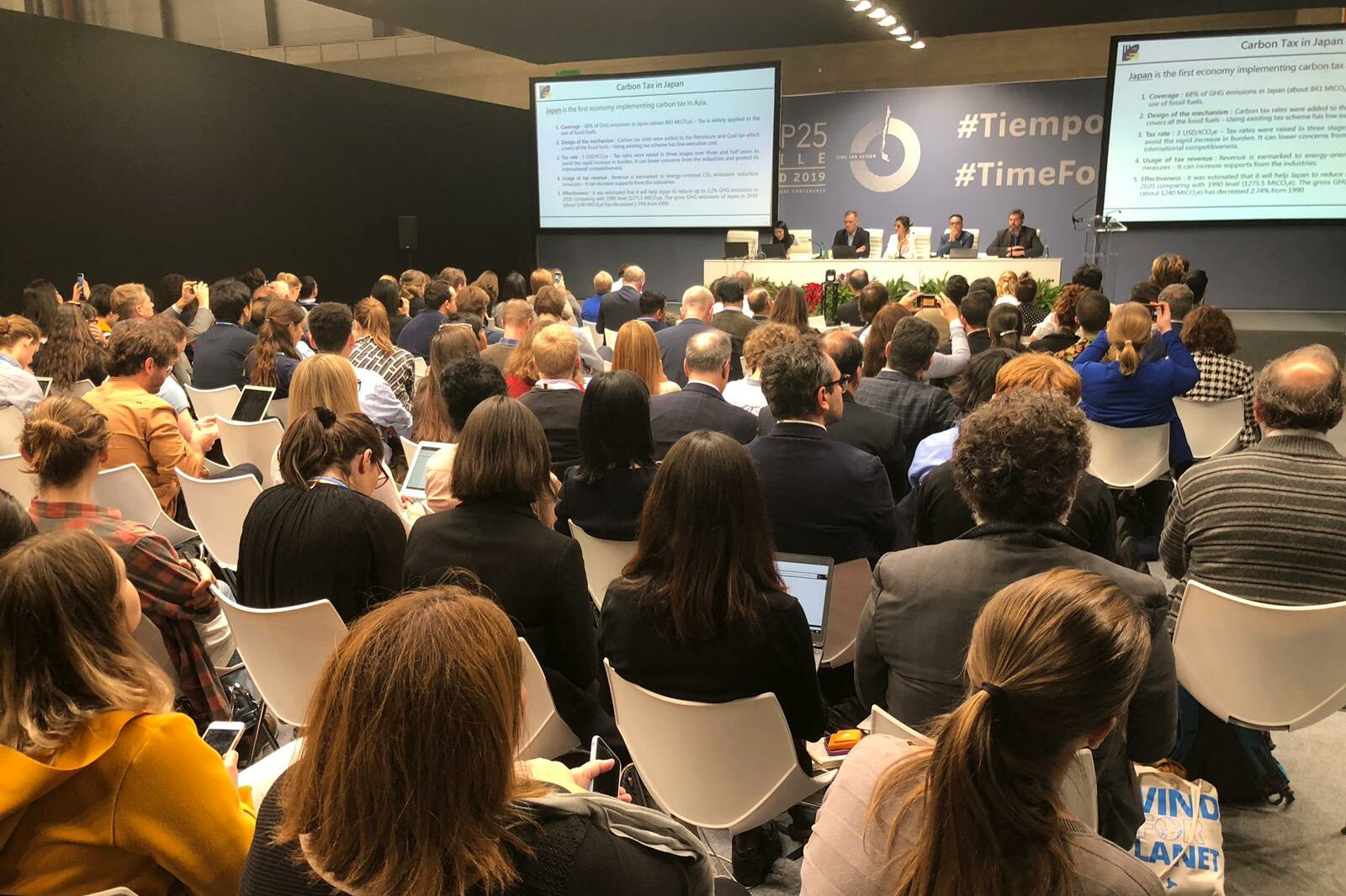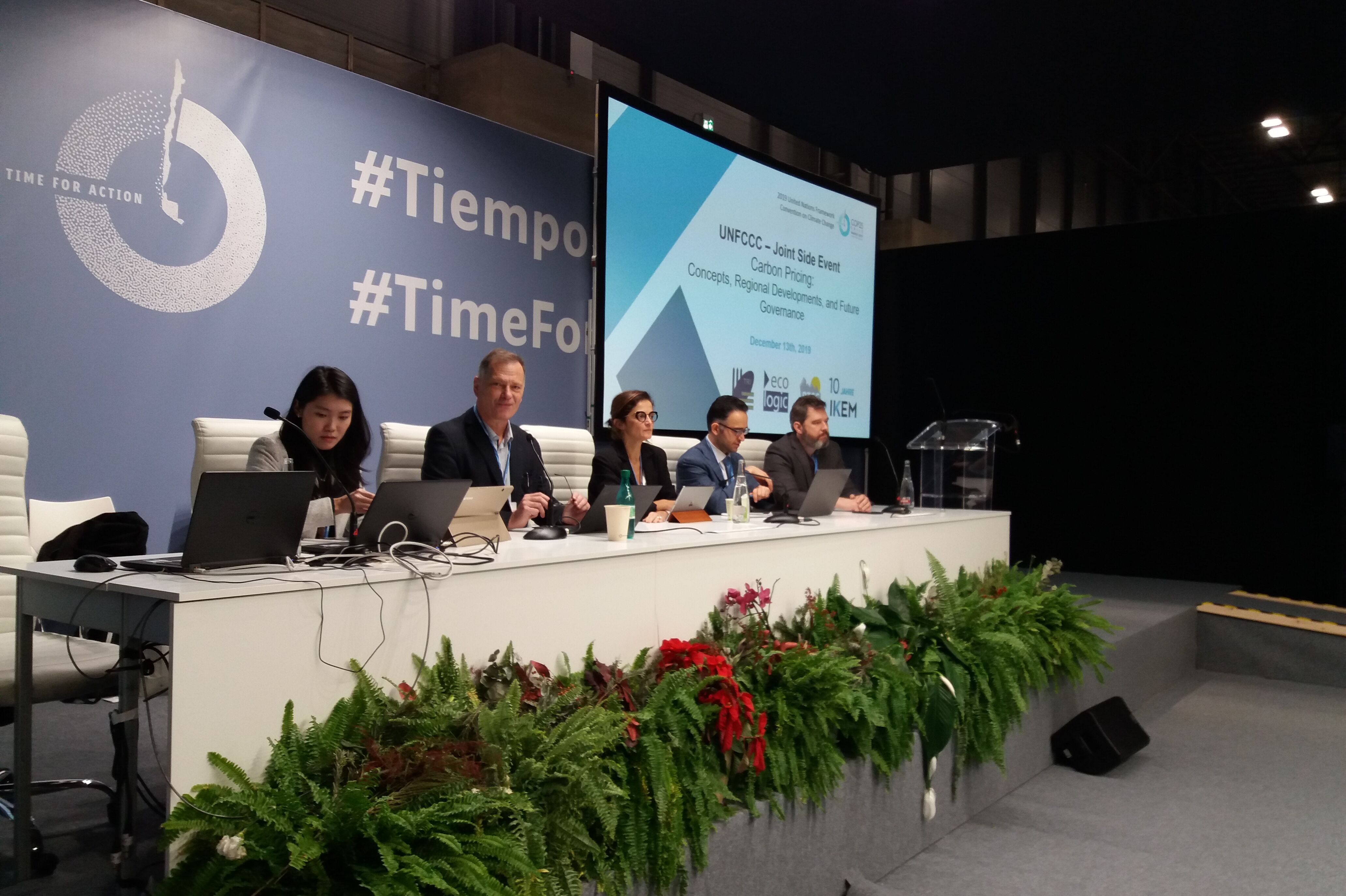IFZO Energy Research Group (ERG) ended the year 2019 with a remarkable event: active participation in the United Nations Climate Change Conference (COP 25) in Madrid. The president of the COP 25 was the Government of Chile, but due to the ongoing unrest in Santiago, the conference was moved to Spain.
Prof Michael Rodi and I participated in several side-events on topics such as clean energy technology, CO2 mitigation and CO2 pricing, discussions and the negotiations during this most important climate change event. Furthermore, the IFZO ERG had a few meetings with other delegates and participants from the US, Brazil, Taiwan, Germany, Denmark, among others.
We are in the post-Paris (https://unfccc.int/process-and-meetings/the-paris-agreement/the-paris-agreement) paradox: despite the success of the conference (i.e., COP 21), the current situation regarding tackling climate change is obscure. We vividly observed this during COP 25 with no tangible outcome, although the conference started with lots of hope for and promises to progress on the implementation of the Paris Agreement. During the last couple of days of the conference, frustration was at the highest. For instance, due to youth and indigenous people protests in the conference venue on Wednesday 11.12.2019, the UNFCCC restricted the access of observers to COP25 and barred all of the observers to the venue.
Despite the frustrating outcome of COP25, we had a successful side event with our colleagues from IKEM, Taiwan Research Institute, MIT and Brazilian Institute of Energy Law. The tile of this full-house event was “Carbon pricing: concepts, regional developments, and future governance”. In my talk “Carbon pricing conundrum: socio-political aspects”, I discussed why the socio-political question of carbon pricing must be addressed in parallel with the technical questions providing some examples from Anti-carbon tax rallies in Australia in 2011 and Canada in 2019. Carbon pricing could challenge the political systems and stability of countries. Furthermore, I argue that carbon pricing is not only expediting the deployment of renewable energy but also enabling the development of emerging technology such as Carbon Capture and Storage (CCS) and the new generation of nuclear power such as nuclear fusion. In conclusion, I argued that communication with all stakeholders in all stages of decision making is vital. However, the methods and process of communication are complex and play an essential role in tackling the socio-political challenge of carbon pricing.
The title of Prof Rodi’s talk was “Emissions Trading and Energy Taxes – A European Misunderstanding”. Prof Rodi started his presentation by giving an overview of different types and approaches to carbon pricing. Then, he elaborated on differences and similarities between carbon taxes and emission trading system. He concluded that although emissions trading and carbon taxes have a fairly equivalent function in theory, carbon taxes need fundamental changes in policy and legislation. Thus, it is less favoured by the policymakers.
In sum, activists, civil society, indigenious people and so forth were dissatisfied with COP25 and hoping the next conference (COP26) in Glasgow in the UK will have some promising and practical outcome. Given the climate change negotiations have been going on for over 25 years, it seems to reach a binding agreement globally to be something of a chimaera. Climate change and global warming are alarming, and we have passed the tipping point; however, seemingly politicians do kick the can down the road and are pushing the burden to the future!
Report: Farid Karimi
Link to the video recording of the side event: https://bit.ly/3783Qys
Link to the presentations of the side event: https://www.ikem.de/en/cop25-side-event-carbon-pricing/
Link to all side events and video recordings (UNFCC website): https://seors.unfccc.int/applications/seors/reports/events_list.html?session_id=COP%2025




